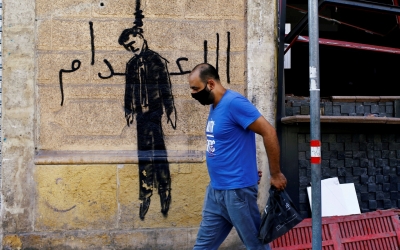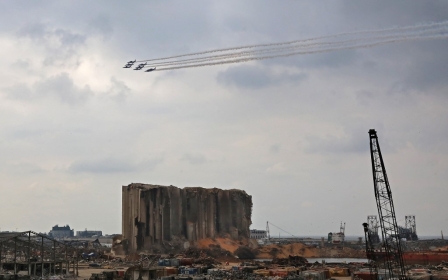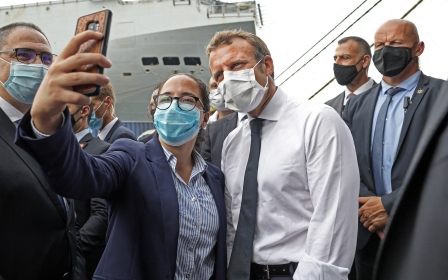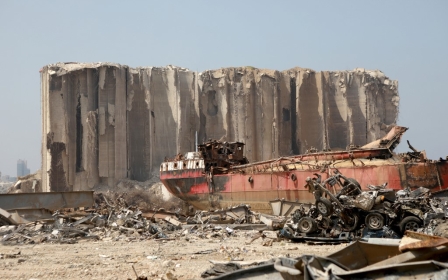'Pulse' raises hope of survivor one month after Beirut blast
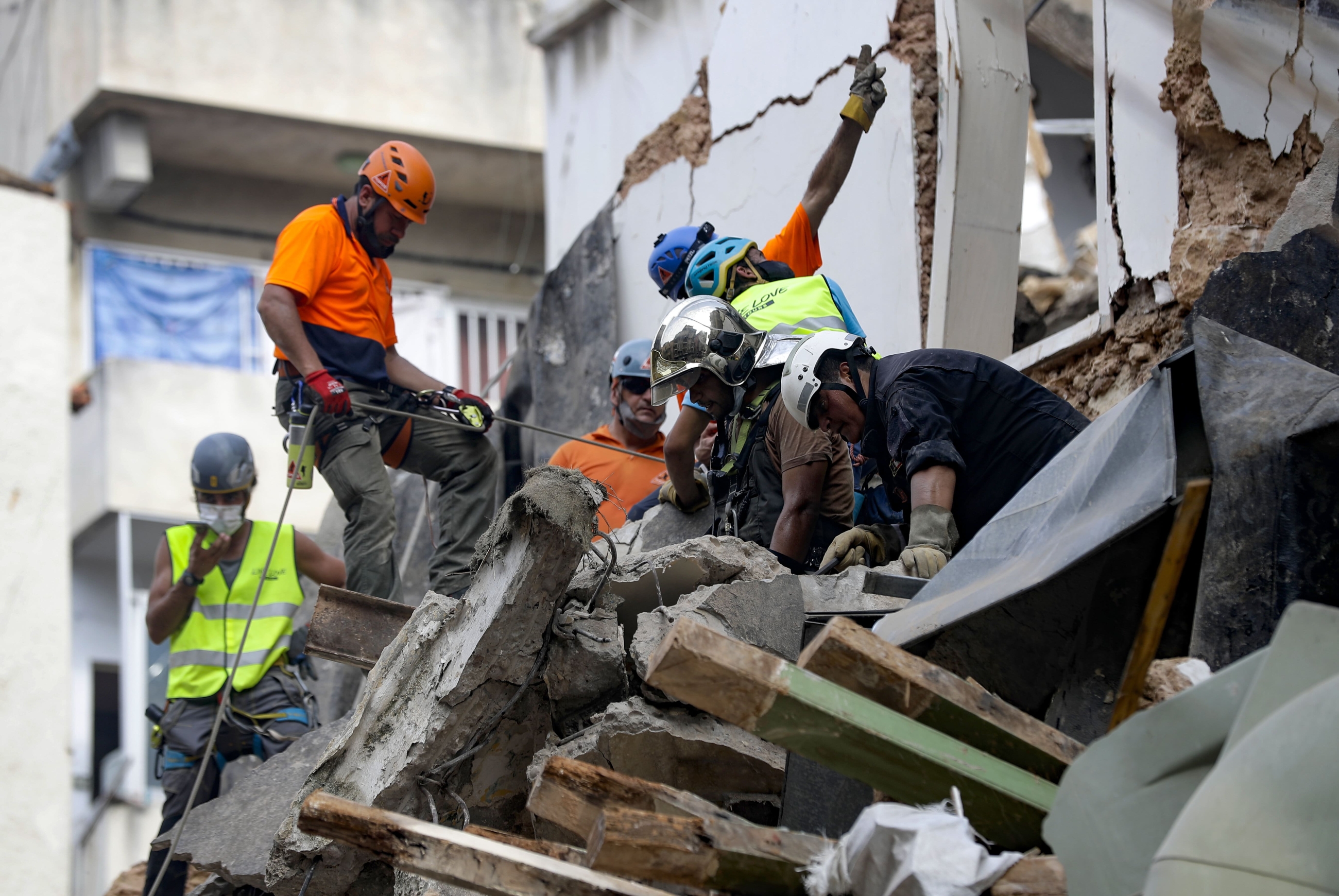
Rescuers in Beirut are searching through the rubble of a building for possible survivors, almost a month after a powerful blast devastated the Lebanese capital.
A sniffer dog used by Chilean rescuers responded to a scent from the site of a collapsed building in the Gemmayzeh area, the city's governor, Marwan Abboud, told reporters at the scene late Wednesday.
"There could be survivors," he said, explaining that scanners had detected a pulse. "We hope someone will make it out alive."
Al Jazeera's Lebanon correspondent Zeina Khodr tweeted on Thursday that "search teams say they detected a body and what could be a person with a heartbeat under the rubble".
Michel al-Mur of the Beirut fire department also said a pulse was detected about two metres below the rubble.
New MEE newsletter: Jerusalem Dispatch
Sign up to get the latest insights and analysis on Israel-Palestine, alongside Turkey Unpacked and other MEE newsletters
"One person, according to the [thermal] camera, still has a pulse," Mur said.
Speaking to local broadcaster LBCI, a rescue worker said scanners had picked up a respiratory rate of "19 breaths a minute".
Lebanon's government has attributed the enormous blast that hit the capital Beirut on 4 August to 2,700 tonnes of the chemical compound ammonium nitrate left lying in a warehouse in Beirut port since 2013.
The blast killed at least 190 people and injured 6,500, while the World Bank has estimated that it caused as much as $8.1bn in damage and economic loss to the cash-strapped country.
The blast has aggravated an economic crisis that has seen the country's currency plummet as unemployment and poverty have soared, among a host of woes, including a steep rise in the number of coronavirus cases.
The UN Economic and Social Commission for Western Asia (ESCWA) said on Sunday that more than half of Lebanon's population may face a food crisis in the aftermath of the explosion
"More than half of the country's population is at risk of failing to access their basic food needs by the year's end," ESCWA executive secretary Rola Dashti said.
Lebanon relies on imports for 85 percent of its food needs, and the destruction of silos in the explosion may worsen an already alarming situation, aid agencies and experts have said.
Earlier this month, ESCWA said more than 55 percent of the Lebanese people were "trapped in poverty and struggling for bare necessities".
Middle East Eye delivers independent and unrivalled coverage and analysis of the Middle East, North Africa and beyond. To learn more about republishing this content and the associated fees, please fill out this form. More about MEE can be found here.


